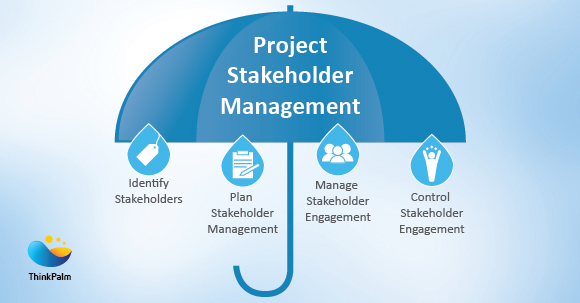Project Stakeholder Management is introduced as a new knowledge area in the 5th edition of PMBOK (Project Management Body of Knowledge). The classic definition of Stakeholder goes as follows:
A stakeholder is anyone who has an interest in the project or will be affected by its deliverable or output.
It is important to understand the expectations and issues of every stakeholder in order to provide the successful delivery of a project. Stakeholder management is the process of managing the expectation of anyone who has an interest in a project or will be affected by it. This is an intuitive principle but a rationalized and planned approach in this knowledge area has become the need of the time; therefore the new knowledge area of PMBOK is justified.

Can a project manager really manage the expectations of the stakeholders directly? Or does it happen automatically when the processes of other key knowledge areas are properly managed? In a way, it should happen by itself, but there are a few important factors that can be uniquely arranged in this knowledge area which will have a positive impact on the other managed parameters of a project.
Before getting elevated to the status of an independent knowledge area, project stakeholder management resided as a part of the project communication management, until the 4th edition of PMBOK.
The four process groups identified in project Stakeholder management are as below:
• Identify Stakeholders
• Plan Stakeholder Management
• Manage Stakeholder Engagement
• Control Stakeholder Engagement
This is the process group that identifies everyone, be it groups or individuals, affected positively or adversely (know thy enemies! even though you are going to forgive them) by the outcomes of the project. Major stakeholders of a project are: Customers, Sponsors, Functional Management, Project Team and Project Manager.
This process group comes up with the management strategies required to engage stakeholders effectively. This inevitably becomes part of the master project management plan. An actionable plan is the expected output of this process group. A power-interest based classification of stakeholders can be handy at this stage. (Know who is interested and got the power to move the cheese)
This process outputs effective communication with stakeholders and works with them to meet their needs through meaningful and appropriate involvement in project activities. It’s like letting them watch the ‘making of the movie’ before they watch the actual movie. Yes, you are going to sacrifice the pleasant surprise element, but then, you are not looking for nasty surprises either, right?
This is the process of monitoring overall project stakeholder relationships and then adjusting the strategies and plans for engaging stakeholders accordingly. Yes, the classic control’ element of management dominion.
The bottom line is: As a project manager, manages the processes in the other knowledge areas magnificently; you will have the least action required in the processes.
• Project Integration Management
• Project Scope Management
• Project Time Management
• Project Cost Management
• Project Quality Management
• Project Human Resource Management
• Project Communications Management
• Project Risk Management
• Project Procurement Management
• Project Stakeholder Management
Like all management models, the fundamental benefit of stakeholder analysis is that it helps bring understanding to a complex situation and therefore helps project managers to manage stakeholders in the most effective way. It enables them to concentrate on resources where the maximum benefit will be derived and keep an informed communication planning for the project.